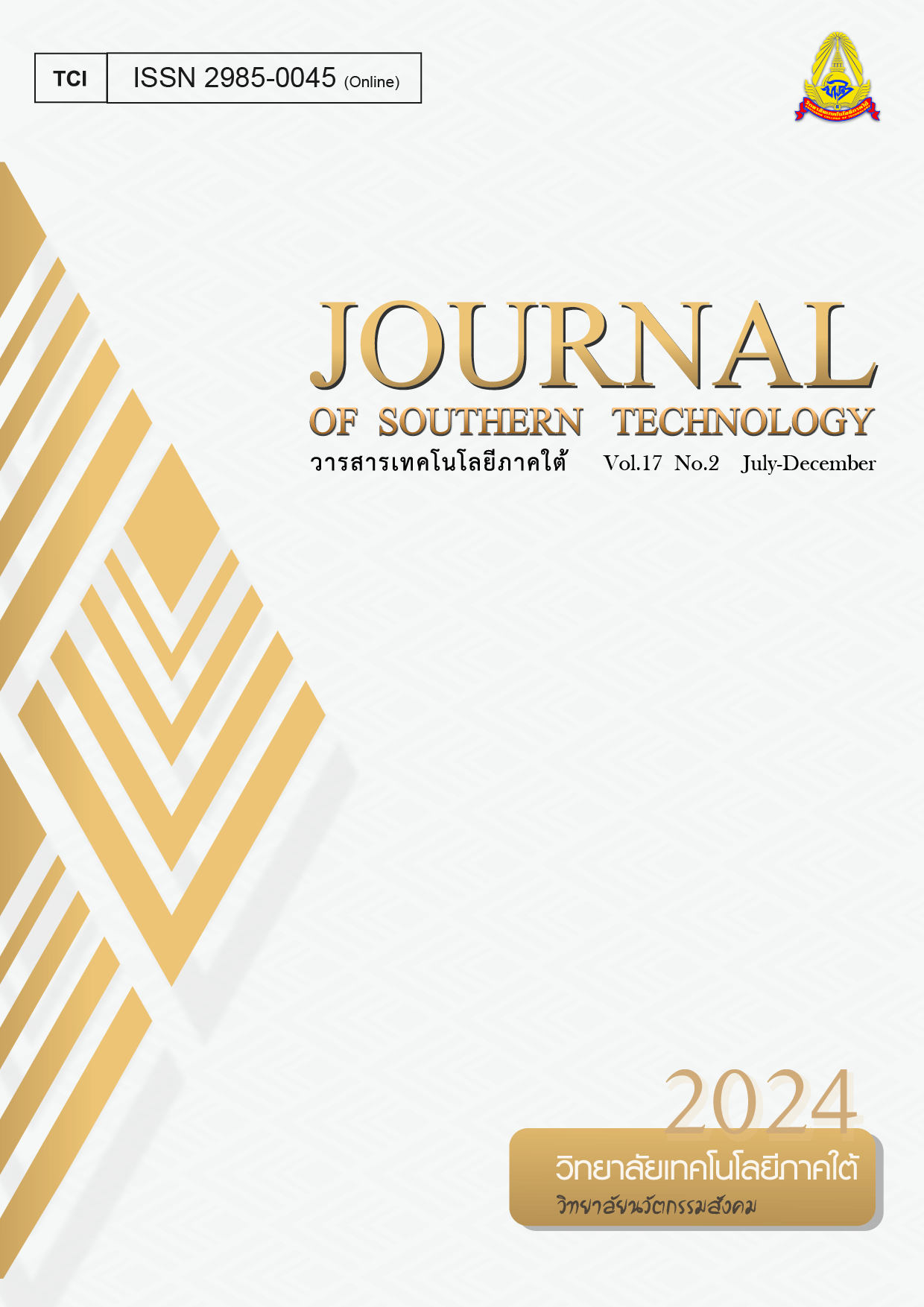Model of Creative Tourism Management through Community Participation Process: A Case Study of Koh Lae Nang Tourism Community, Thepha District, Songkhla Province
Main Article Content
Abstract
Creative tourism that emphasizes community participation not only promotes the local economy but also helps preserve the culture and lifestyle of the community. Additionally, it fosters long-term sustainability by building positive relationships between tourists and local communities. This research aims to: study and examine factors affecting the management models for creative tourism through community participation processes; and develop a management model for creative tourism through community participation processes. The study employs a mixed-methods approach, which includes quantitative research using questionnaires distributed to 140 residents and tourists visiting the community. The data obtained are analyzed statistically using the mean, percentage, frequency distribution, and standard deviation. Qualitative research is conducted through in-depth interviews and focus group discussions with 35 stakeholders in the area. The collected data are analyzed for content and triangulated to confirm the accuracy of the information for developing a management model for creative tourism through community participation processes. This study found that the management of creative tourism through community participation in Koh Laenang tourism community lacks a model and mechanisms for driving the management of enterprise groups, as well as the creation of distinctive community identities and community readiness to accommodate tourists. The factors affecting the management model of creative tourism are divided into four aspects: organizational management systems, community members, entrepreneurs, and tourists. Overall, the assessment of these aspects passed. However, there were some sub-issues related to the planning and the goal-setting that were unable to pass. In addition to developing a management model for creative tourism through community participation, it should focus on a clear management structure, tourism development planning, goal setting, fair income distribution among members, communication with entrepreneurs, and knowledge transfer processes for tourism personnel and community members. This will create a participatory process and a sustainable model for creative tourism management.
Article Details

This work is licensed under a Creative Commons Attribution-NonCommercial-NoDerivatives 4.0 International License.
-
Authors must agree to the journal publication rules and allow the editors to edit the manuscripts for publication.
-
Author’s right belongs to the author but Journal of Southern Technology holds the right of first publication and thus allow readers to use the article for the purpose of education but not commercial.
References
Akarawong, S.T., Jaiyen, S., & Dengnui, N. (2021). Development of health tourism personnel in Nakhon Si Thammarat. Journal of Southern Technology, 14(2), 15-27. [in Thai]
Ankomah, P., & Larson, T. (2000). Educational Tourism: A Strategy to Sustainable Tourism Development in Sub-Saharan Africa. Retrieved https://www.researchgate.net/
Juliratchaneekron, T., Ruangthip, P., Rujiranukul., P., & Pradujprom, P. (2022). Guidelines for developing a creative tourism model: Phetchaburi Province. Suan Sunandha Academic & Research Review, 16(2), 15-31. [in Thai]
Chanket, K. (2017). Sustainable Community Tourism Management: The Case Study of Koh Yor Community, Songkhla Province (Master’ Thesis), Thammasat University. [in Thai]
McIntosh, R., Goeldner, C. R., & Ritchie, B. J. (2007). Tourism: Principles, Practice and Philosophies (7th ed.). New York: John Wiley & Sons.
Mots Economic Report. (2023). Economic Tourism and Sport Division. Ministry of Tourism & Sport. Retrieved May 31, 2023, https://www. facebook.com/ETSMOTS. [in Thai]
Pratep, T. (2013). The Administration Achievement Pattern of Participatory Ecotourism (Doctoral Dissertation). Bansomdejchaopraya Rajabhat University, Bangkok Province. [in Thai]
Putjorn, J., & Visuthismajarn, P. (2017). A model of ecotourism management in marine parks in Thailand. Veridian E-Journal, Silpakorn University, 10(5), 601-613. [in Thai]
Wongkam, K.C., & Maneenet, V. (2020). The Community Based Tourism Management at Ban Hua Khua Kae Dam Subdistrict Kae Dam District Maha Sarakham Province (Research Report). Rajabhat Mahasarakham University, Mahasarakham Province. [in Thai]

